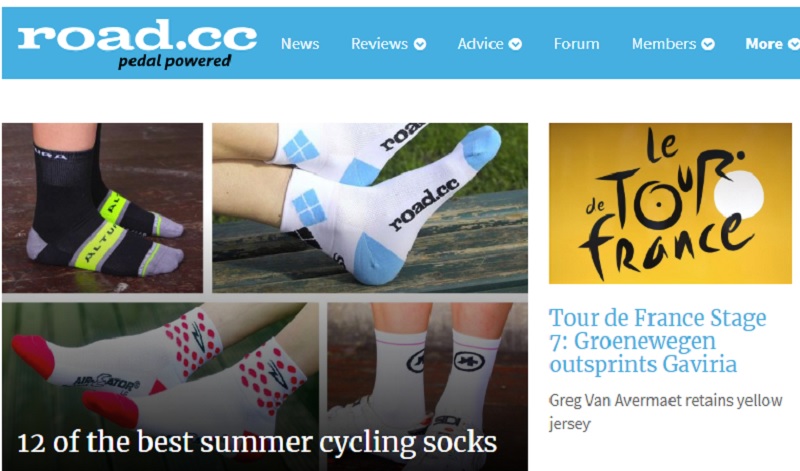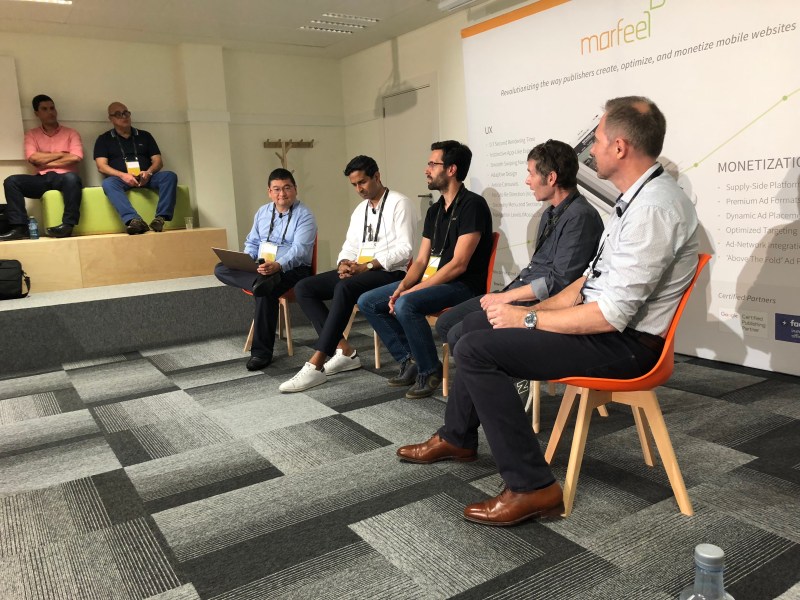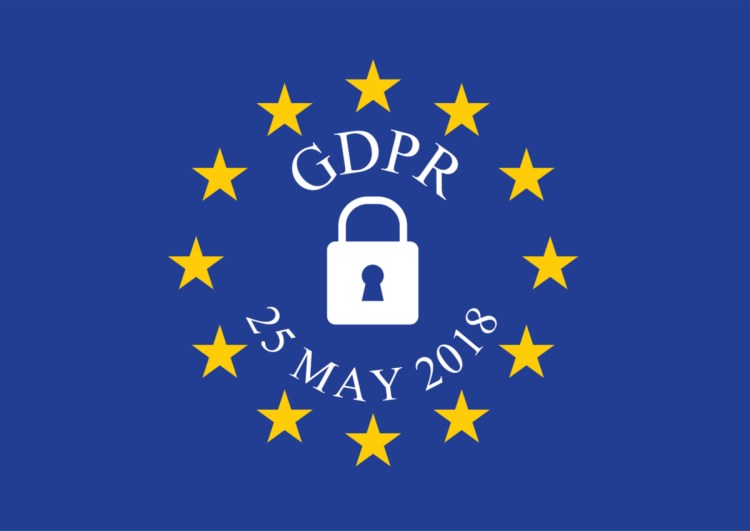VentureBeat: So as long the lawyers are happy, end of discussion.
Beumala: Lawyers — I think that, ultimately, the only ones making a lot of money are lawyers.
Menon: Whatever revenue we are fighting for, the tech companies, now we’ve got to share that with lawyers, as well.
Now just to your point, I think that tech is part of that solution, at least that step toward a solution. But that — again, looking at it from a U.S. perspective — I think, personally, the U.S. … historically, from an advertising perspective, we have a very promiscuous relationship with data. And so what needs to change almost is, before you get the data in, there are a lot of publishers my size, and companies are having a serious discussion about how we need to rethink the way we actually build up this model — both our relationship to readers and how we actually make money off it.
June 5th: The AI Audit in NYC
Join us next week in NYC to engage with top executive leaders, delving into strategies for auditing AI models to ensure fairness, optimal performance, and ethical compliance across diverse organizations. Secure your attendance for this exclusive invite-only event.
So tech is part of the solution, but if you don’t actually have any kind of strategy as you move forward, I don’t think tech would necessarily help you. So I don’t think tech, alone — it needs to go hand in hand. That, unfortunately, is also very news-case based. It depends on the publisher; it depends on how you set it up, or on your audiences, how you’ve grown that audience — there are so many other factors that are going into play. But I think tech is something that would hopefully get you there.
VentureBeat: And that’s very confident right now.
Beumala: Seeing ourselves as users, when browsing is done, what do we prefer? To be targeted with things that are out of my interest, or with random things that [I] don’t care [about] at all? That is the first question that we should be asking ourselves, because at the end of the day, there’s no one stealing data. And if I go to buy a TV at Amazon yesterday, why shouldn’t I see it again, instead of seeing a random item I don’t care about?
Farrelly: It would be better if the pop-up said something else. You wanted to see your cart working the way it did the day before yesterday.
Beumala: There was a lot of discussion — it’s not a robot. We’ve had lots of discussions in-house with our lawyers and then with big network lawyers, and it’s like — can we go forward and state [that] you accept the policy? I don’t know the odds of you seeing this so far, but if not you would start seeing uncomfortable words — one of those words that make you feel embarrassed. Because the worst thing about it being there is that if someone doesn’t accept, you can’t cut the service. It’s mandatory to give service to the users. It’s like, I’m a retailer, I have my supermarket, and I must let people get in, allow them to pick things and get out of there without saying goodbye. [To say] they have to say goodbye, that’s the only thing — they don’t have to pay for it. It’s ridiculous.
Farrelly: From communicating with the users’ perspective, one of our big income streams is our affiliates. We have a message that pops up if you click on an affiliate link. We got input, the networks that we use all have input on what it should say. And they state what they want, and we said use this and maybe you want to put at the front why we are doing this, and they took that onboard, and it hasn’t really affected … people just click and say yes.
Menon: I think that’s really interesting. I mean we thought — definitely programmatically — and for most of the publishers that we spoke to, that was the biggest if. But also the other thing that we … I know a few publishers that are saying this. Also, the quality of the programmatic ads suddenly dropped. So all of a sudden, on our newsletter, for example, we had few programmatic [ads before], and we started seeing them. I’m like, this is kind of weird, like we never had this sort of quality problem before. The other issue also is there’s no way for us to make that correlation between that and this, so at this point, it’s like a best guess. We are just guessing that something is happening where these people are — either giving us consent or delaying it for some reason — that that is somehow affecting it. Then when you talk about programmatic partners, they are kind of unsure, as well, because the other issue at this point — we have not gone past the 25th enough to where there’s enough data. So a lot of these folks are, like, “It’s too early to tell what the actual effects of these things are.” So we are all sort of basically guessing at the moment, which in our industry is just not something you wanna do on a daily basis. It’s hard enough when you have all of the data and you are trying to make a logical choice.
Beumala: We have to be waiting several months on the road. On direct sales, this is going to have the same impact once they are able to measure the biggest effect. And then again, if there are any legal issues somewhere in Europe, then I think that things would get more serious.
VentureBeat: Seriously. Do you worry that there’s going to be a downturn that would be associated with GDPR?
Beumala: So the first big change that we identified, for example, CPM, at the end of this month, has grown twice as much compared to previous months — from the first day of the month to the last day of the month. Our understanding of the situation is that as it is, they were keeping money on hold just to see if they were investing it in buying things or not, so the month has accelerated in a way. It might be market users trying to see what is happening. Let’s see if my conversion rates keep going, because at the end, they still need to prove that their numbers … they have a business. Until they prove again their entire value chain, it’s going to take several months.

Above: Tony Farrelly publishes Road.cc.
VentureBeat: Is it also safe to say Europeans are affected by this or everybody around the world?
Beumala: Equally.
Webb: I think the law says [to behave as if] you are serving to a European citizen, wherever they are in the world.
Farrelly: Because some big U.S. publishers just blocked Europeans.
Beumala: Yes. Absolutely. There are startups that are [doing that] as well …
Menon: I personally didn’t know the facts — especially if you are digital-first publisher and social publisher — [at this time] most publishers … I believe those in the U.S. are like, “It is almost impossible to tell who is your audience, whether a European citizen or not.” The classic case is someone from the EU who is in Asia when he’s reading your content, does that qualify? And then that stuff that is hard — especially if you don’t have that first idea of where [they are]. If their presence comes before that [situation], if you need the consent, you have some way of identifying that reader in that whole different scenario. But that’s tough, because if you are not in that space — that type of publication that has that many business models — that’s really hard to do.
VentureBeat: There is a bigger unknown here, and I guess it has to be that worry about the downturn [getting] bigger for you. And this sort of made a certain month unpredictable, and then that messes you up, right? Your business planning also had a weird month, and you’ve lost some data.
Beumala: I think the problem is kind of bigger. So the media publishing industry has been struggling along for the last few years. I would say — it’s one of the most talented industries, as of today, and this year, it’s shaking up month after month, so we’ve got ads, we’ve got our density tool, we’ve got all the SEO changes coming from Google, we’ve got GDPR, we’ve got lots of things, rotating things happening just around this — that [even] if the industry were strong in terms of monetization, this is just hitting [publishers] again and again, and the business model is under extreme [pressure].
Get used to it. So I think that this by itself — if it cost anything, we would say “OK, let’s go and tap in and fix it.” But the thing is this year — and there are still a couple of more things coming this year. The other day I was joking with a colleague and we were saying yeah, Google is promoting most of these things and they keep us busy while they load all their stuff, while making sure we won’t know all about those. Right. By now, I think the challenge for the industry is that it keeps shaking up, and there is not a clear business model that makes it sustainable over time.
VentureBeat: I’m feeling kind of depressed now.
Beumala: I remember when I was a kid, buying a newspaper, well, my mother buying it, and that was the truth. It wasn’t a newspaper, it was the real truth. There was nothing else beyond that. Now you buy a newspaper and it’s like ok, you check on the internet and try on 10 different news sites and you do your own research and you do the due diligence on whatever is going — that is hard.

Above: Left to right: Dean Takahashi of VentureBeat, Rithesh Menon of Good Media Group, Tony Farrelly of Farrelly Atkinson, and David Webb of Timera Media.
VentureBeat: Do you have anything to be cheerful about?
Menon: If I provide the very slim silver lining here, going back to your example, I think there was a time perhaps, when the relationship between the publisher and the reader was as straightforward as it got. You could argue those when you bought the newspaper, pre-internet or whatever. Somewhere between the internet coming of age and, basically, three months ago, that relationship became as convoluted as possible. There was an assumption that if I go to a publisher site whose content I like, I am somehow supporting them. The reality is that the money is coming from my pocket and … going through potentially some ads network, some advertiser, some marketer, [it] pays a couple of servers, all this stuff happens, a lot of people take their share.
So what this has done in a way is it’s made the whole process even harder. I think, if you were a publisher and you were to take a very, very long-term view of it, I think the only silver lining, in my opinion, the only thing in any way to be mildly optimistic about is that if you had been discussing internally how to start collecting more first-party data and get to know your readers better, you kept delaying it either because of the walls of Facebook or whatever you want to call it. I think that actually would pay off in the long-term. And I say this with the caveat that obviously a lot of other internal things remain the same, which it never does in this industry, but I genuinely believe that in some way that might be the only positive thing that comes out of this whole exercise. That’s assuming, again, that a lot of things remain the same.
Beumala: I think that there’s something here that we don’t really get at. So if we look at where users come from on a website, we have the power users, which according to publication are 30 percent or something like that. The rest come from a combination of Facebook platform and clients. Can’t we build a business on these 30 percent? With the other ones, the learning curve on getting to know these users is going to be hard, because Google and Facebook make sure you only get them once or twice a month, so the frequency of those visits is much lower.
Then what can we do to make those users super loyal so we get their dollars out of their pockets? So then we get into a mix of content, maybe start producing content about online advertising. I may find a reader may like reading a lot about online advertising but may also like reading other stuff. And this is what Facebook and Google are doing really well. So they have options to keep me entertained, every single day, at different times of the day. They know what they want at every single hour, and replicating it from publisher perspective is hard so.
Menon: But on the front side, if you’ve got a viewer thinking, for example, “At one point I want to get into commerce. I want to potentially get into any kind of affiliate,” this could potentially be that excuse that you needed to do it because if you are getting that deep 20 percent, 30 percent in.
Farrelly: Our website is about 10 years old this year. We had a discussion internally about whether we should we become a social net. One of our competitors is more or less a social website, and in the end we said no. You can’t predict Facebook. Its business model is not clear. With Google it is a simple proposition. Facebook’s proposition is just being big, and that’s it. And then we work out how we are gonna make money out of being big. After all, things like Cambridge Analytica seem to make this happen because all Facebook’s focus is on growth, and then we worry about expanding and any spillage or whatever afterwards, with all the massive amounts of money we would have when we are already big.
It seems to me, coming back to you, the best policy is to have relationships with your site’s core users, grow the core and deepen it. If you are smaller, it’s a lot easier. If you are a niche publisher, the people coming to us have got an interest, so it’s easy to engage them and it is in their interest if we are very generous and we can build a decent size. Equally, the profile of our users is of interest to other advertisers and to programmatic applicants of the net.
Webb: Even Facebook now would say “We shouldn’t be your only traffic source.” That’s actually something again that’s come out of this is where we used to focus of sort of being the best social publisher we absolutely could be. Now we need to do that and diversify and try get that first party data and try to create that relationship with the customers and readers directly and that is exactly the sort of thing that Facebook has been telling us to do as well. It’s tough, we have to change, ultimately like Rithesh said. I think it’s a silver lining. I think the publishers that have passionate audiences will continue to engage them. It’s not gonna be instant, it’s gonna be a tough process of transition but it is something which is gonna be ultimately healthier as a result.

